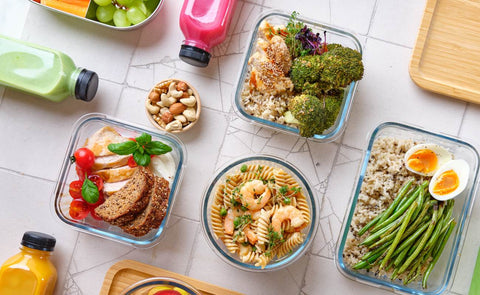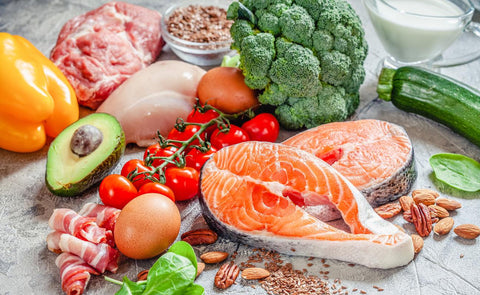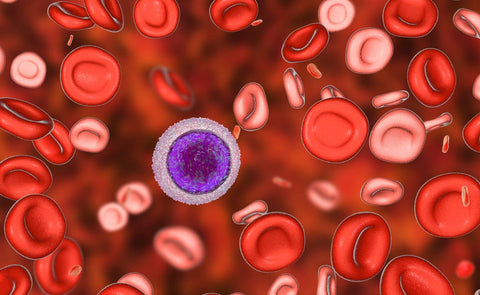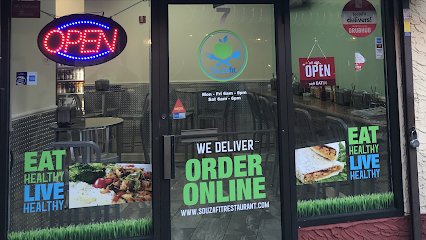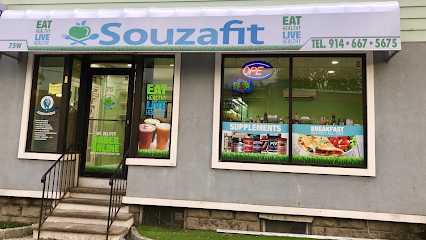In today's rapidly moving environment, establishing steady routines can significantly help in staying focused and organized. Among various methods, meal prepping stands out as an effective technique for creating structured and manageable eating habits. This practice involves planning and preparing meals in advance, allowing you to maintain a balanced lifestyle with minimal day-to-day decision-making.
By integrating meal prep into your weekly routine, you can experience a range of advantages. Not only does it simplify your daily schedule by reducing time spent cooking each day, but it also enhances nutritional intake by giving you full control over ingredients and portion sizes. Embracing meal prep can be a key step in streamlining your busy life while promoting healthier eating patterns.
What Is Meal Prepping?
Meal prepping is the practice of preparing meals in advance, usually for the entire week. Many people designate a specific "meal prep day," such as Sunday, to handle this task. On this day, you select recipes, gather ingredients, and cook your meals. Alternatively, services can deliver prepared meals to your door, eliminating the need to cook.
Through meal planning, you can simplify your daily routine by eliminating the question of what to eat. This method can deter the temptation of fast food after a tiring day, providing a healthier alternative. You can easily reheat these pre-prepared meals, offering fresh and nutritious options for breakfast, lunch, and dinner throughout the week.
Why You Should Consider Preparing Your Meals in Advance
1. Save Time
Getting started with preparing meals in advance can help you reclaim precious time in your day. Cooking demands time, and many find it challenging to fit it into their busy schedules. By organizing your meals beforehand, you can often save time otherwise spent on daily cooking. Because your meals are ready to go, your mornings free up for other tasks or relaxation. Batch cooking is an efficient strategy that allows you to prepare meals or components in larger quantities, minimizing the need for daily cooking.
2. Improve the Nourishing Quality of Your Meals
When you plan and prep your meals, you have full control over the ingredients and portions, which often results in more balanced diet choices. Creating a meal plan that prioritizes whole foods, such as fresh fruits, vegetables, and lean proteins, can help you meet your nutritional goals. Reducing your reliance on processed foods and sugary snacks is a great way to support better eating habits.
3. Lower Your Stress
Daily meal decisions can be mentally taxing. Knowing that your meals are ready and nutritious can eliminate the stress of making last-minute food choices, especially after a busy day. A thoughtful meal plan ensures you avoid 'decision fatigue' — the mental strain resulting from countless small decisions.
4. Manage Your Budget More Effectively
Advance meal prep can help you stay financially savvy by reducing impulse grocery buys and excess spending on dining out. Preparing a grocery list minimizes random purchases, ensuring you stick to what’s necessary. Such an approach is a reliable way to stretch your budget while ensuring availability of ingredients for healthy recipes.
5. Acquire New Culinary Skills and Nutritional Insights
As you dive into meal preparation, you cultivate new skills ranging from chopping techniques to mastering balanced meal composition. This learning experience not only enhances your culinary prowess but also enriches your nutritional understanding, leading to well-rounded decisions about diet, such as choosing more fiber-rich legumes and whole grains.
6. Establish a Consistent Eating Routine
Having meals pre-planned helps you establish a consistent routine by providing structured meal times. A routine can stabilize your metabolism, leading to improved energy levels. Sticking to set meal times can help avoid erratic eating patterns and support maintaining a diet rich in different food groups.
7. Counteract Unplanned Eating Choices
Preemptive meal planning acts as a deterrent against impulsive eating decisions. With meals thoughtfully planned and prepared, the space for temptations to disrupt your eating plan diminishes. This planning helps you prioritize nutritious options over convenience-focused, less healthy choices.
8. Streamline Portion Control
Prepping meals in advance offers the luxury of deciding adequate portion sizes tailored to your needs. It empowers you to create portions aligning with dietary guidelines, mitigating the risk of overeating. Portion control is vital for managing specific diet plans, which may demand attention to calorie counts or food types.
9. Discover Enjoyment in a New Activity
Meal prepping is not just a practical choice; it can also be an enjoyable hobby. Trying out new recipes or engaging with an online meal prep community can make the process fun and interactive. Experimenting with new ingredients and sharing your creations can add an engaging dimension to meal preparation.
10. Reduce Food Disposal
Incorporating meal prep into your routine can significantly cut down on food waste by encouraging mindful purchasing and utilization of ingredients. Planned meals reduce the likelihood of forgetting about perishable items in the fridge, turning potential waste into consumed energy. This approach not only benefits the planet but also keeps your kitchen efficient and organized.

